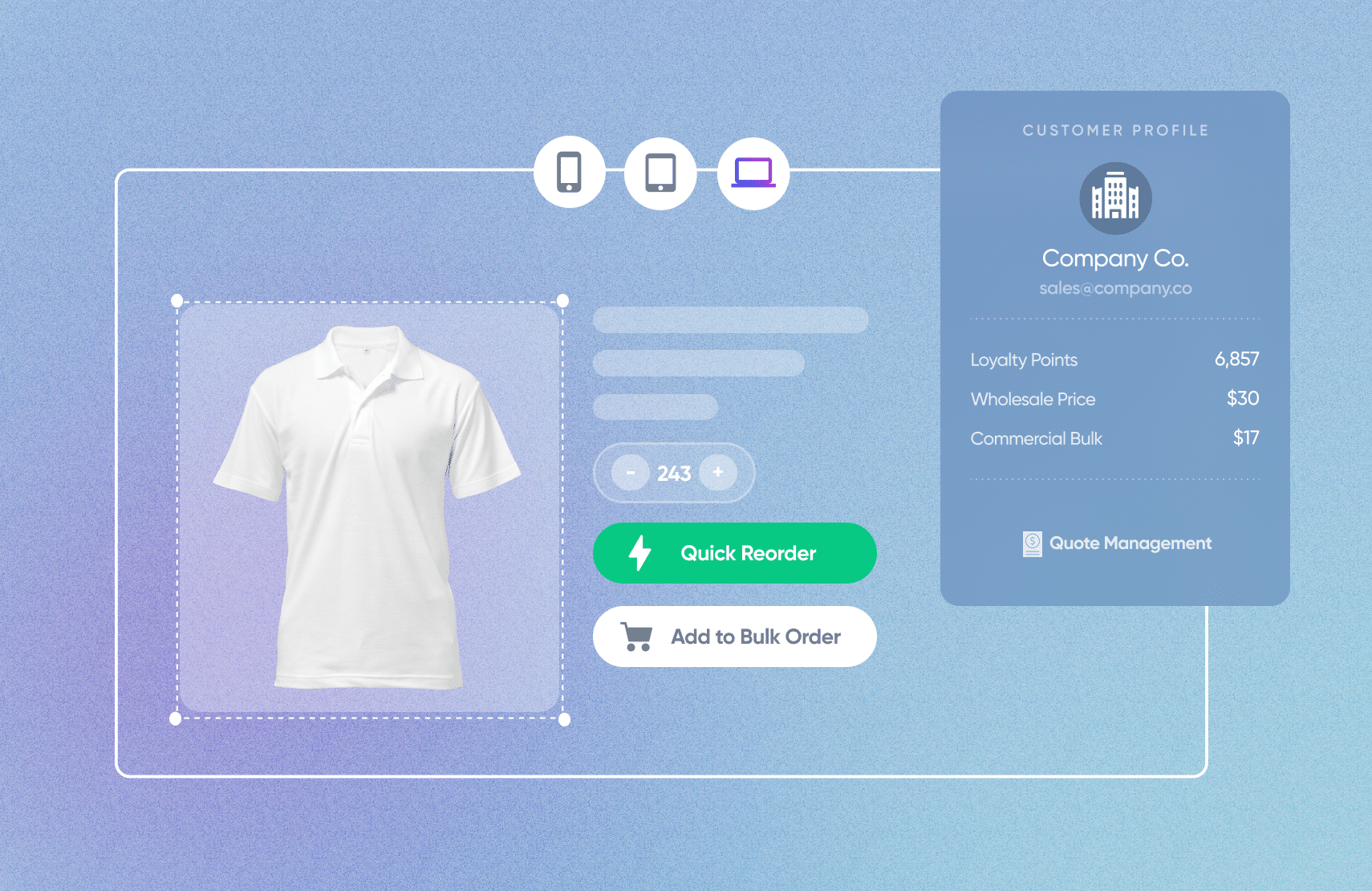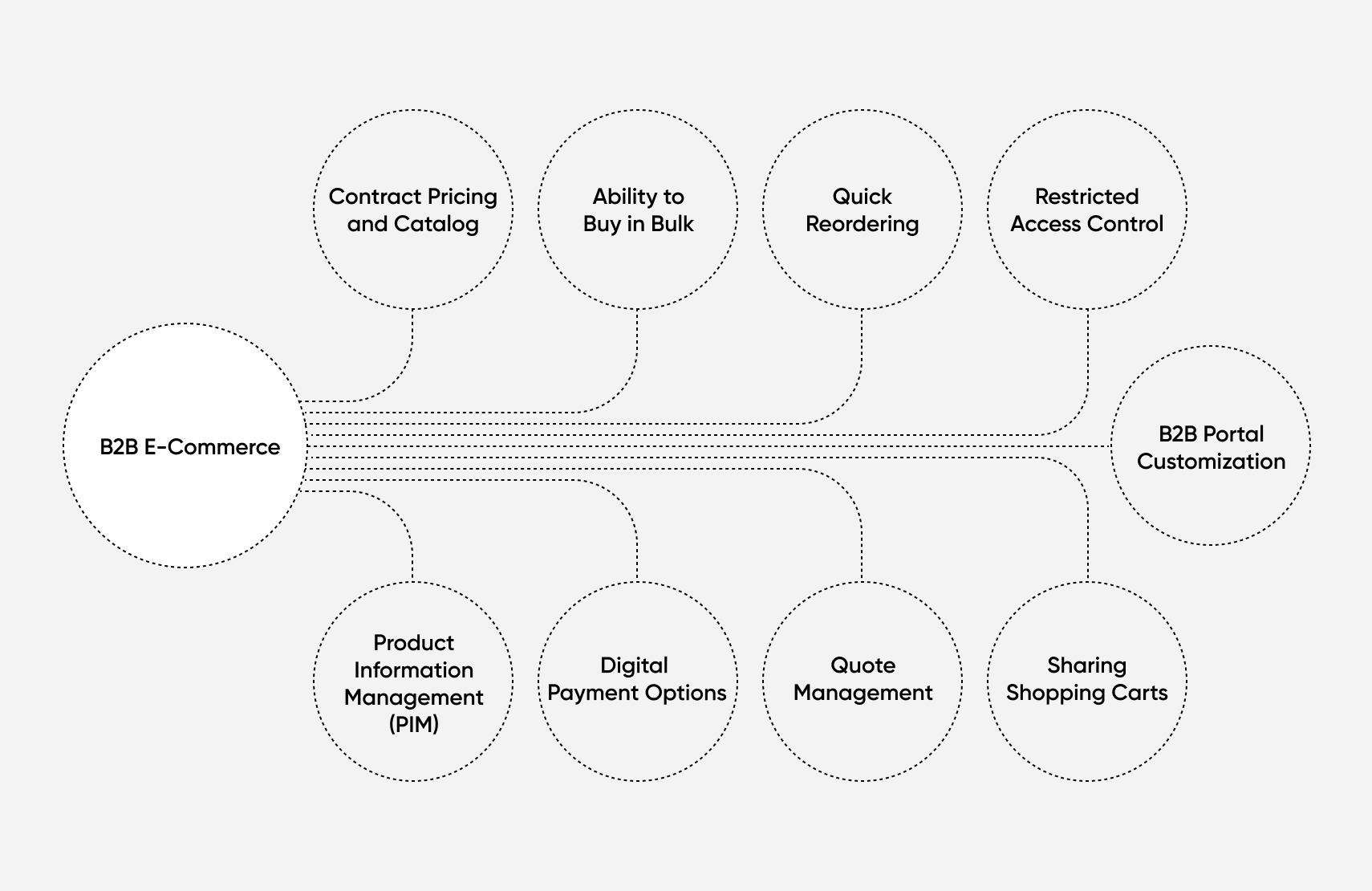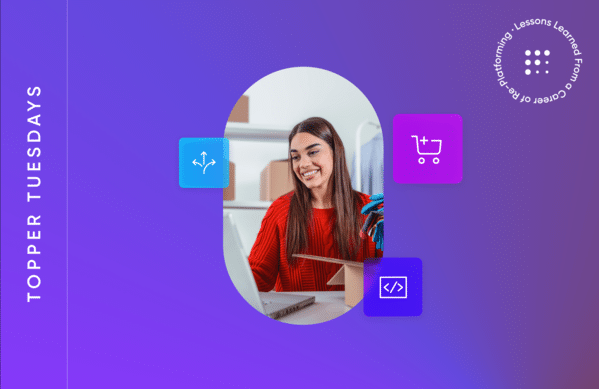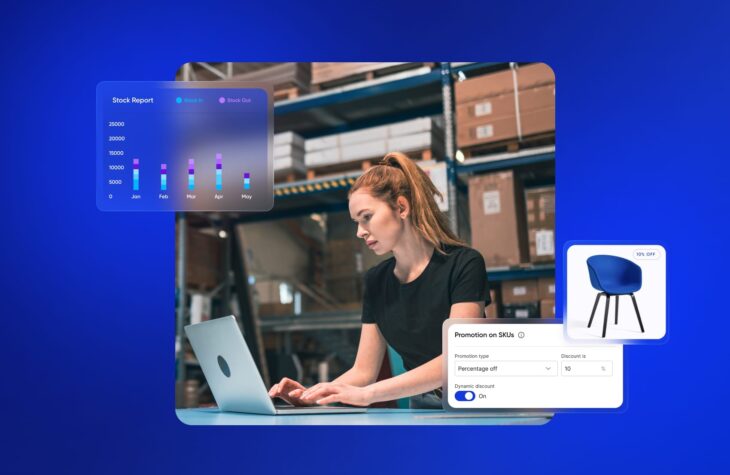What Are Core Features of B2B E-Commerce Platforms?

The B2B e-commerce market is projected to exceed 18% CAGR until 2028.
Core B2B e-commerce features must address unique B2B use cases like quote management, bulk orders, and B2B payment options.
Because B2B purchasing involves multiple stakeholders, features like shared shopping carts and portal customization can significantly improve customer experiences.
With fabric B2B, businesses have all the core features they need to grow their online sales.
E-commerce has become table stakes in the world of B2B sales. While B2C e-commerce garners many of the headlines, the global B2B e-commerce market is over five times bigger than the B2C market and still growing at an impressive pace.
With the B2B e-commerce market projected to exceed 18% CAGR until 2028, merchants have plenty of opportunities to grow their bottom line with modern B2B e-commerce platforms. B2B e-commerce platforms with the right features help merchants take advantage of this growth by optimizing CX and improving B2B customer journeys.
The core features of B2B e-commerce platforms that can help merchants take advantage of this growth and improve the B2B customer journey include:
- Contract pricing & catalog
- Bulk ordering
- Quick reordering
- Restricted access control
- Portal customization
- Shared shopping carts
- Quote management
- Digital payment options
- Product information management (PIM)
While creating a B2C experience for B2B buyers is an important aspect of modern B2B e-commerce, workflows in B2C vs B2B e-commerce are still fundamentally different. For example, B2C pricing is generally the same across the board, but contract or quote-based pricing is typical with B2B. Similarly, net payment terms, payment methods like ACH and wire transfers, and workflows with multiple stakeholders are staples of B2B.
In addition to the e-commerce security, performance, and usability requirements any e-commerce platform should meet, B2B e-commerce features must also account for these unique use cases. Below, we’ll take a closer look at the core features of B2B e-commerce platforms that can help B2B merchants meet their customers’ demands and take advantage of the growth.
Core Features of B2B E-Commerce Platforms
There are plenty of examples of B2B e-commerce sites that get it right, and the features below are often a big reason why. Here are the core B2B e-commerce features to consider when evaluating a platform.
Contract pricing and catalog
In B2B e-commerce, contracts dictate who pays for shipping, pricing, and payment terms. B2B product catalogs are also often extensive and may include SKUs that aren’t available to all customers. This makes the ability to provide custom pricing and specialized catalogs two of the most important core features of B2B e-commerce platforms.
Ability to buy in bulk
Bulk orders and wholesale purchases are staples of B2B sales. B2B e-commerce sites should let customers make bulk purchases with as little friction as possible. Pricing, bulk quantities, availability, and delivery estimates are important aspects of bulk order UX. Solutions like wholesale order management software go a step further and provide a set of B2B e-commerce features that streamline wholesale workflows end-to-end.
Quick reordering
E-commerce features like Amazon’s 1-click patent that generated billions demonstrate the benefits of removing friction from the buying process. Because reorders are one of the most common B2B buyer workflows, removing reorder friction can lead to a CX boost. As a result, quick and easy reordering is one of the most important B2B e-commerce features.
Restricted access control
Contract-based pricing creates a unique challenge for B2B e-commerce sites. Merchants need to strike a balance between SEO and customer-specific pricing. Public product catalogs are a major part of e-commerce SEO, but B2B sellers can’t display the same prices to everyone. Restricted access control lets B2B businesses hide or customize pricing based on the user.
B2B portal customization
B2B purchasing workflows often involve multiple parties and can vary significantly from one organization to another. Additionally, B2B product offerings are often huge, making catalogs challenging to navigate.
Customizable B2B e-commerce portals help businesses solve this problem. Administrators can assign roles and permissions to users. Then, when users log in they only see items and features relevant to their business needs. A promotions engine takes customization further and lets merchants provide customer-specific discounts.
Sharing shopping carts
In B2B commerce, different people may be responsible for product selection and checkout. With shared shopping carts, one user can place items in a cart for another user to review and approve. In addition to sharing a single cart, the ability to create multiple shopping carts is another important B2B e-commerce feature.
Quote management
Manual quote workflows can create a lot of friction in the buying processes. B2B e-commerce platforms should help merchants streamline and automate the process for their customers. For example, a B2B e-commerce portal that provides one-click access to request for quote (RFQ) forms can speed up the quoting process.
A B2B e-commerce platform’s quote management features must integrate with a broader sales order management process. By integrating the processes, merchants can reduce the risk of human error and increase fulfillment speed.
Digital payment options
Today, B2B payment methods are a mix of traditional forms of payment and modern payment methods. Supporting a broad range of payment methods is a core B2B commerce feature that can help make for a great checkout experience.
Product information management (PIM)
Product information on an e-commerce site can make or break a purchase decision. In fact, Episerver’s “Reimagining Commerce” report found that incomplete or incorrect product information dissuaded 98% of consumers from completing a purchase. PIM software helps B2B merchants keep product information, pricing, and images up-to-date across many omnichannel touchpoints.

Product management @ fabric. Previously b2b e-commerce @ Shipwire, Fiserv, Zong, and Google.







